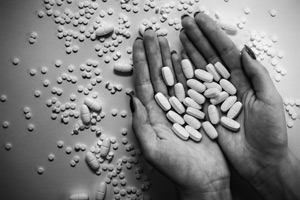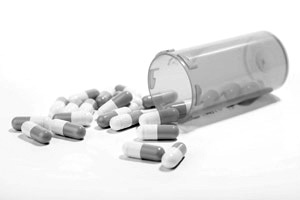What Is Prescription Drug Abuse?
Prescription Drug Abuse is the use of prescription medication to create an altered state, to get high, or for reasons-or by people-other than those intended by the prescribing physician.

Alarming Statistics
- Every day 2,000 teens in the United States try prescription drugs to get high for the first time. (Source: Partnership for Drug-Free Kids)
- 60% of teens who have abused prescription painkillers did so before age 15. (Source: Partnership for Drug-Free Kids)
- 45% of those who use prior to the age of 15 will later develop an addiction. (Source: Misuse of Prescription Drugs. national Surveys on Drug Use and Health, Substance Abuse and Mental Health Services Administration. 2006)
- More than 29 percent of teens in treatment are dependent on tranquilizers, sedatives, amphetamines, and other stimulants (all types of prescription drugs). (Source: SAMHSA: Substance Abuse Treatment Admissions by primary substance of abuse according to sex, age group, race, and ethnicity: Treatment Episode Data set 2004)
- 12 to 17 year olds abuse prescription drugs more than they abuse ecstasy, crack/cocaine, heroin, and methamphetamine combined. (Source: Partnership for a Drug Free America)
- There are as many new abusers age 12 to 17 of prescription drugs as there are of marijuana (Source: Partnership for a Drug Free America)
- Nearly half (49%) of all college students either binge drink, use illicit drugs or misuse prescription drugs. (Source: Center for Addiction and Substance Abuse at Columbia University)

The Risks
Taking Prescription Medications to get high can be as dangerous and addictive as using illicit drugs. Combining prescription drugs with other prescription medicines or over the counter medications and/or alcohol increases the effects of each drug and the risk of overdose.
Narcotics
Restlessness, Nausea, Dizziness, Confusion, Respiratory depression Scars caused by injections, loss of appetite, cough, lethargy, tolerance, addiction, unconsciousness
|
Withdrawal affects -
|
Overdose -
|
Depressants
Intoxication similar to alcohol, Slurred speech, Impaired memory and judgment ,Loss of motor coordination ,Respiratory depression, Staggering or stumbling, Lack of coordination, Slurred speech, Falling asleep, Difficulty concentrating, Dilated pupils, Slowed pulse and breathing, Lowered blood pressure, Confusion, Addiction
|
Withdrawal affects -
|
Overdose -
|
Stimulants
Increased heart and respiratory rates Rapid or irregular heartbeat, Elevated blood pressure, Decreased appetite, Rapid or irregular heartbeat, Loss of coordination, Collapse, Unhealthy weight loss, Perspiration, Blurred vision, Irritability, Argumentativeness, Nervousness, Increased blood pressure or pulse rate, Dilated pupils, Long periods without sleeping or eating, Dizziness, Insomnia (can't sleep), Restlessness, Anxiety, Delusions
|
Withdrawal affects -
|
Overdose -
|
(Source: http://www.abovetheinfluence.com/facts/drugs-prescription-otc.aspx)
ONE TIME CAN KILL ™
If you find evidence of your child using cocaine, heroin, methamphetamine, ecstasy or any prescription or over the counter medications, consider this discovery an emergency situation! Your child needs a professionally administered substance abuse assessment.